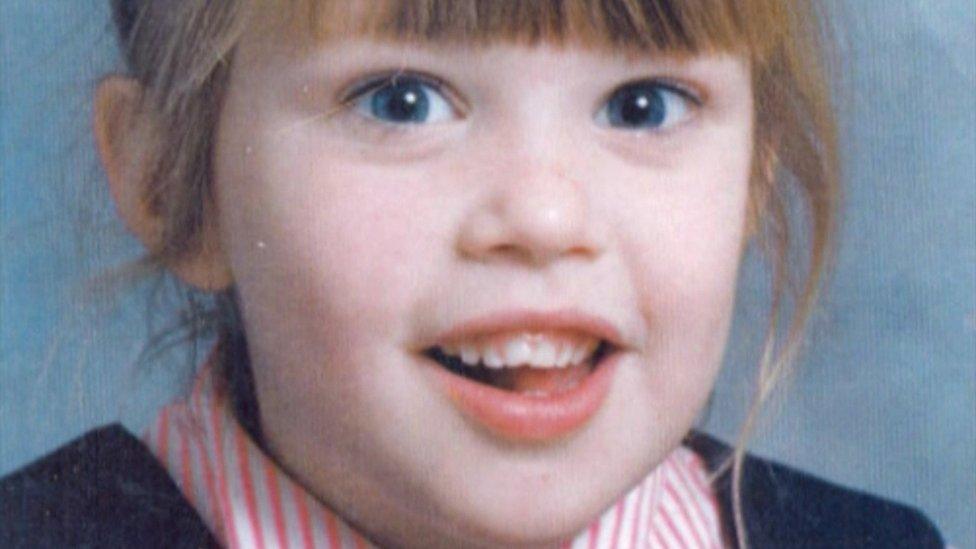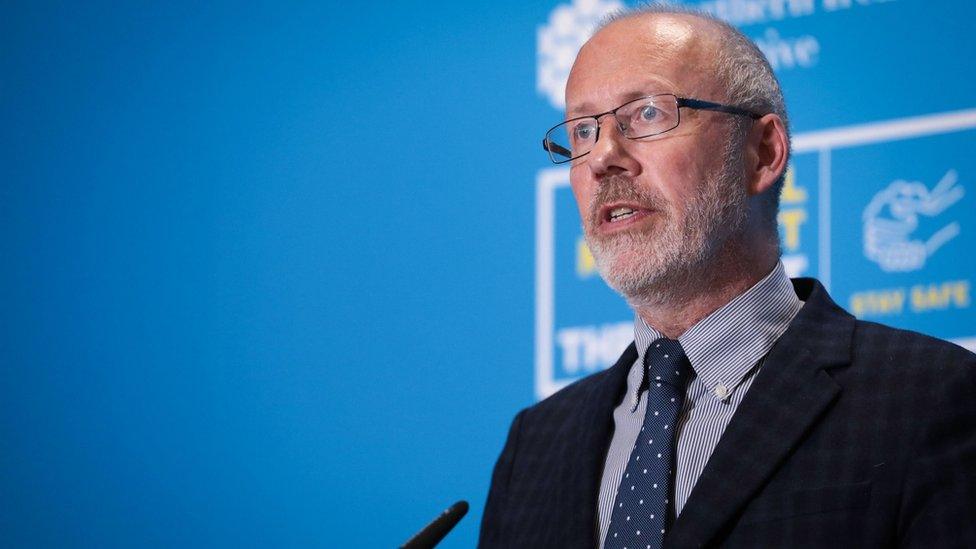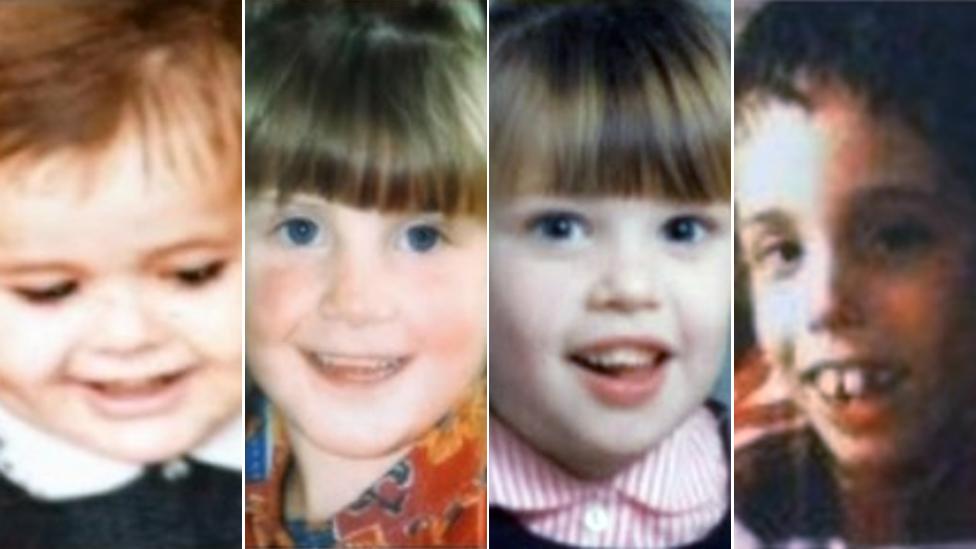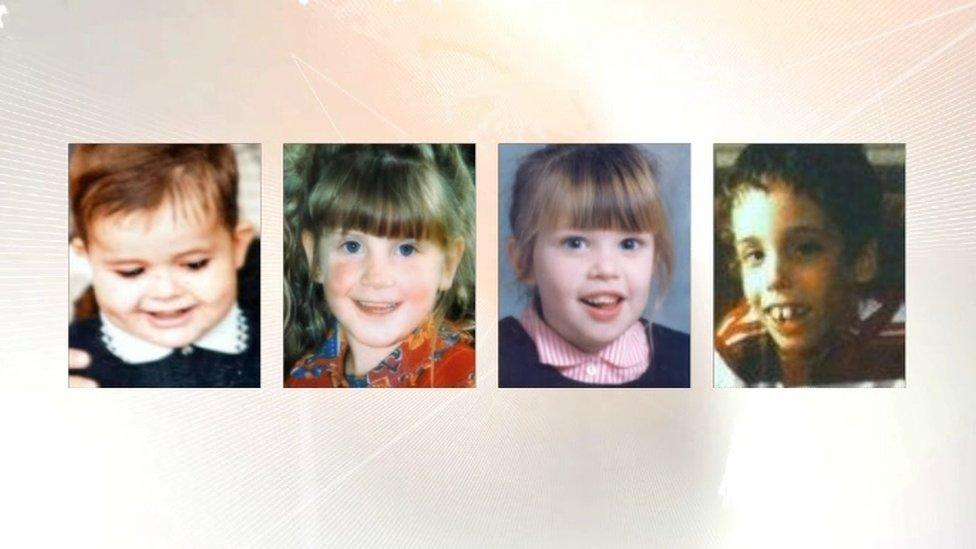Hyponatraemia: Stormont adviser apologises to girl's family
- Published

Nine-year-old Claire Roberts died in the city's Royal Hospital for Sick Children in 1996
NI's chief scientific adviser has apologised to the family of Claire Roberts, whose death was examined as part of the Hyponatraemia Inquiry.
Professor Ian Young is challenging a decision to investigate his role following the death of the nine-year-old girl.
A court hearing took place in London on Thursday.
His lawyer said he was "deeply sorry" for "inadvertently contributing" to the stress of Claire's family in any way.
Claire's parents attended the judicial review which took place remotely.
The inquiry, into the deaths of five children at hospitals in NI, found that four of them were avoidable.
Claire died in Belfast's Royal Hospital for Sick Children in 1996. An inquest found that her death was caused by treatment she received in hospital.
Prof Young was not involved in the treatment of any of the patients.
At the judicial review, Prof Young is challenging the General Medical Council (GMC) over a decision to investigate him as part of its review of medical professionals connected to the Hyponatraemia Inquiry.
In an opening submission, Prof Young's barrister Robert Kellar QC said it was important to remember that behind all legal argument was the death of Claire Roberts who died in what he described as "tragic circumstances".
'Inconsistent and unreasonable'
In 2004, the then Medical Director of the Royal Group of Hospitals, Dr Michael McBride, now chief medical officer, asked Prof Young to provide an independent assessment on whether hyponatraemia contributed to Claire Roberts's death.
The purpose of Prof Young's assessment was to inform Dr McBride's decision over whether to refer the matter to the coroner.
The inquiry report said that Prof Young "shifted from his initial independent role advising Dr McBride to one of protecting the hospital and its doctors".

Prof Young, now NI's chief scientific adviser, was asked to provide an assessment in 2004
At Thursday's remote High Court hearing, Mr Kellar said the case against his client "involves substantial delay, significant forensic prejudice, exhaustive prior public ventilation and no risk to public safety".
He argued the original decision that it was not in the public interest to waive the statutory time limit on investigations was "lawful and rational" and that the reversal of that decision was "inconsistent and unreasonable".
He also argued that the second decision by the GMC "took into account irrelevant considerations and unfairly mischaracterised Prof Young's conduct".
'Provided misleading information'
Peter Mant, representing the GMC, argued in written submissions: "The gravamen of the concerns about the claimant's conduct, in short, was that upon being asked to review records relating to the death of Claire Roberts he immediately identified failings in fluid management that were likely to have contributed to her death but failed to inform the family or coroner of this fact, and instead provided misleading information that was intended to protect the hospital and its doctors."
He told the court the case concerned "very serious" allegations that Prof Young identified that "there were errors in the management of Claire's fluids which contributed to the hyponatraemia which contributed to her death and that those were not acknowledged to the family".
Mr Mant also thanked Mr and Mrs Roberts on behalf of the GMC "for the concerns that they have raised".
He added that Prof Young was "a skilled and respected practitioner" but that the GMC was concerned "with the protection of the public" and maintaining public confidence in the medical profession - which he said was "at the heart of this case".
Mr Mant also emphasised the GMC was not "making any findings" about Prof Young at this "early stage in the proceedings".
The hearing before Mr Justice Holgate concluded on Thursday afternoon and judgment was reserved to a later date.
Related topics
- Published8 May 2018

- Published31 January 2018
